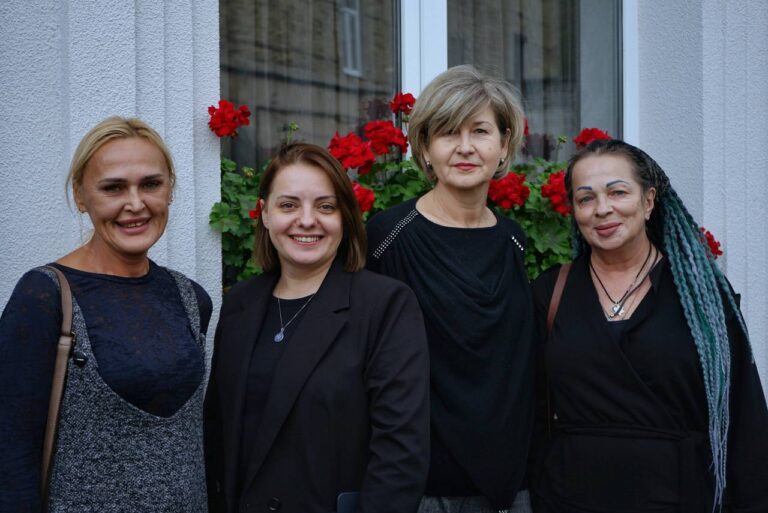Written by Anne Scott, Chief Program & Impact Officer at the Elton John AIDS Foundation
In a world where health disparities persist and access to quality care remains unequal, the Elton John AIDS Foundation is committed to championing health equity for all.
Achieving health equity is a fundamental pillar of ending new cases of HIV in the United States and globally. This means ensuring equal access to healthcare regardless of race, ethnicity, socioeconomic status, sexual orientation, or geographic location, and keeping the needs of marginalized communities at the forefront of our approach.
To shed light on the Foundation’s roadmap to overcome health inequity, I am looking forward to participating in the “Access to Specialty at Retail” panel at the ASEMBIA pharmaceutical conference this week (April 28 – May 2, 2024). With our partner Walmart, as well as the Health Action Alliance, Virginia Board of Pharmacy, and National Association of Boards of Pharmacy, we will discuss the unique role pharmacies who specialize in HIV services can play in creating healthier communities.
Addressing barriers to HIV care
While progress continues to be made in developing effective prevention and treatment options for HIV, over 30,000 new infections still occur annually in the US. Certain groups, including gay and bisexual men, Black women, transgender women, youth, and people who inject drugs, face higher risks for HIV, largely due to structural and systemic barriers, as well as racism and stigma. At the Foundation, we are committed to reaching these groups with support by making entry points to care more accessible.
Historically, tackling HIV globally has involved teams of different health experts working together, and pharmacists have the potential to play an important role in our ongoing efforts. Through our collaboration with Walmart—which has 4,000 stores located in medical professional shortage areas—we are working to increase the capacity and authority for pharmacists to directly provide HIV information and prevention services.
In collaboration with Duke University, Walmart and the Elton John AIDS Foundation have developed a comprehensive online course for Walmart’s pharmacy and clinical staff which covers the benefits of PrEP and other HIV prevention strategies, to help them better support patients living with or most at risk of HIV. In an interview with Dr. Akpan, Pharmacy Manager at one of the Walmart Specialty Pharmacies of the Community in Atlanta, he shared how this HIV training has helped him support patients.
It has helped us to take a comprehensive and holistic view of a patient’s health and overall wellbeing. – Dr. Akpan
Expanding access to PrEP
Approximately 250,000 people recommended for PrEP, one of the most important tools in HIV prevention, in the US are not currently accessing it. While great strides have been made through our partnership with Walmart around PrEP education, only a few US states allow for PrEP initiation at a pharmacy, and policy hurdles still need to be overcome for pharmacists to be able to provide HIV prevention services. We are committed to advocating for approaches to expand access to HIV services through community pharmacies.
Recognizing the critical need to accelerate the expansion of accessible HIV prevention and linkage to care in the US, the Elton John AIDS Foundation has collaborated with players from across the healthcare industry, as well as HIV and equality advocates, to develop a State Advocacy Playbook. This playbook offers a comprehensive guide and toolkit designed to empower both organizations and advocates to develop tailored policies and strategies to advance state scope of practice and payment policies to increase access to HIV prevention through pharmacies.
We are invested in meeting patients where they are and normalizing care through “everyday” channels. People visit pharmacies significantly more often than their primary care provider. Pharmacists are in the community, of the community, and present in places where no other providers are. Community pharmacies also have extended hours of operation enhancing accessibility, and as neutral settings, may be less stigmatizing for people seeking services.
Why Health Equity Matters
Everyone deserves a healthy life but barriers to care are creating a damaging cycle of health inequality.
Stigma not only discourages individuals from seeking HIV testing and treatment but also exacerbates existing health disparities. LGBTQ+ individuals, for example, may face discrimination when accessing healthcare services, leading to delayed diagnosis and treatment of HIV. Socioeconomic factors such as poverty, inadequate access to affordable healthcare, unstable housing, and lack of education also contribute to higher HIV rates and lower uptake of care among marginalized communities.
By addressing the root causes of health inequity, we can continue to make progress towards ending AIDS and ensure that all individuals, regardless of their background or circumstances, can live healthy, fulfilling lives.




